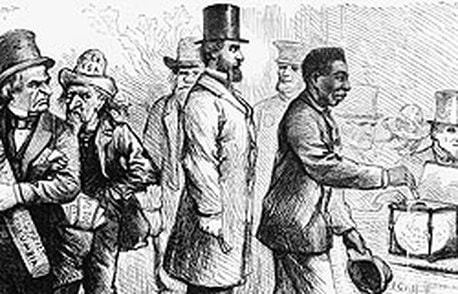A modern example are cell phone data plans. The big cell phone carriers had unlimited data plans, but then this ended. People already on these unlimited data plans could keep them so long as they kept the same service. Anyone new would not have access to unlimited data plans and would have to pay for limited plans, with extra charges and fees for going above the limit.

But a new rule was established in the Southern United States some time between the late 1890s and early 1900s. In order to vote, one had to take a literacy test or own property. A “grandfather clause” allowed anyone who had the right to vote before 1867 to continue voting without having to take a literacy test or own property. The name “grandfather clause” comes into play because this rule also applied to the descendants of anyone who had been granted the right to vote before 1867.
Now this rule was fully loaded as most black people were enslaved prior to 1867, and therefore did not have the right to vote. So basically, the grandfather clause prevented these people from voting even after they had won their freedom since their grandfathers had more than likely been slaves. And slaves were typically forbidden to read, extenuating the problem years after slavery was abolished.
In 1915, the U.S. Supreme Court found these grandfather clauses to be unconstitutional as the aforementioned 15th amendment was meant to give U.S citizens equal rights when it came to voting. Even then, black people faced huge barriers when trying to vote. It wasn’t until the Voting Rights Act of 1965 came into force that the 15th Amendment became a reality.
 RSS Feed
RSS Feed